The Game Changers
Want a career in games? Here’s where you should study!
Video games have infiltrated every aspect of our lives, captivating people of all ages and becoming an essential part of our modern culture. The games industry has transformed into a behemoth, generating massive revenue that now rivals entertainment industries like music and movies.
According to PricewaterhouseCoopers (PwC), the global games market is forecast to grow to a $485 billion per year industry globally by the end of 2027, which is up from $327 billion last year. Developing games is a serious business and Australia’s local games industry is thriving.
Financial incentives like the Digital Games Tax Offset (DGTO) support Australian game developers with generous tax incentives to support these highly creative digital businesses to scale and deliver content to a global audience. As a result, there is strong demand for highly skilled creative game development workforce.
5 Tips for businesses wanting to be more sensory-friendly during the Christmas period
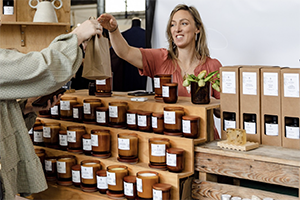 Christmas is a time for celebration and excitement and with this comes lots of bright lights, colourful decorations and loud noises. However, there is a growing trend amongst retailers to introduce a “quiet hour” that minimises sources of sensory overload for neurodivergent shoppers.
Christmas is a time for celebration and excitement and with this comes lots of bright lights, colourful decorations and loud noises. However, there is a growing trend amongst retailers to introduce a “quiet hour” that minimises sources of sensory overload for neurodivergent shoppers.
Neurodivergent refers to a divergence from what is considered typical in mental or neurological function and is often used to describe people with ADHD, autism and other sensory-processing conditions.
THE MULLION GROUP – PUTTING CARBON EMISSIONS ON THE FRONT FOOT
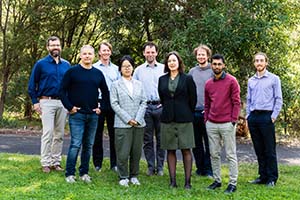 Monitoring and forecasting the impacts of land management practices on production, greenhouse gas emissions, food security and sustainable development is a rapidly growing industry. The need to reduce carbon emissions is becoming increasingly important to meeting international commitments, inform domestic policy imperatives, establishing and implementing more sustainable land management practices. This is not a simple process and it is made more complex by the diverse approaches to the Measuring, Reporting and Verification (MRV) of greenhouse gas emissions. The Mullion group works with its clients to replace often ad hoc processes with inclusive systems that make use of the best data sources available.
Monitoring and forecasting the impacts of land management practices on production, greenhouse gas emissions, food security and sustainable development is a rapidly growing industry. The need to reduce carbon emissions is becoming increasingly important to meeting international commitments, inform domestic policy imperatives, establishing and implementing more sustainable land management practices. This is not a simple process and it is made more complex by the diverse approaches to the Measuring, Reporting and Verification (MRV) of greenhouse gas emissions. The Mullion group works with its clients to replace often ad hoc processes with inclusive systems that make use of the best data sources available.
ToukanLabs – researching its way to major changes in eye care
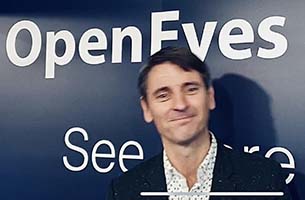 It’s hard to imagine that many of the interactive medical systems we now use to book appointments, get test results and talk to a doctor were once paper based. One such system is the Pharmaceutical Benefits Scheme (PBS), that plays a major part in the Australian health system by providing affordable medicines. In 2012, ToukanLabs developed PharmCIS with the Department of Health – a centralised paperless system that allows streamlined and efficient processing of pharmaceutical products in Australia.
It’s hard to imagine that many of the interactive medical systems we now use to book appointments, get test results and talk to a doctor were once paper based. One such system is the Pharmaceutical Benefits Scheme (PBS), that plays a major part in the Australian health system by providing affordable medicines. In 2012, ToukanLabs developed PharmCIS with the Department of Health – a centralised paperless system that allows streamlined and efficient processing of pharmaceutical products in Australia.
Biometix – seeing what the naked eye can’t
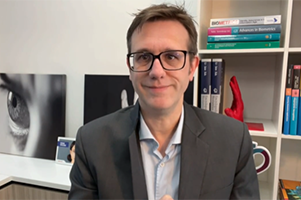 Most of us are now used to staring deeply into our phones hoping that it will recognise our face and unlock, or using our voice or fingerprints to access our bank accounts, but the technology behind all this is complex and growing rapidly. Having completed his PhD in the mid 90’s in biometrics, Dr Ted Dunstone had always wanted to create an innovative business built around his expertise. So, he founded Biometix in 1998.
Most of us are now used to staring deeply into our phones hoping that it will recognise our face and unlock, or using our voice or fingerprints to access our bank accounts, but the technology behind all this is complex and growing rapidly. Having completed his PhD in the mid 90’s in biometrics, Dr Ted Dunstone had always wanted to create an innovative business built around his expertise. So, he founded Biometix in 1998.
“There were a lot of innovative projects happening inside government at that time, particularly around border control. We started our growth by working with the Hong Kong government for around two years as it overhauled its identity systems”, says Ted. In 2001, Biometix implemented the SmartGate prototype in Sydney. SmartGate is the automated passenger processing system that most international travelers are now familiar with. By the time international travel to and from Australia opens up again it is expected that 90 percent of travelers will use this technology.
Endangered Heritage – the role of second responders in a crisis
 If there is a disaster anywhere in the world, Victoria Pearce, founder of Canberra company Endangered Heritage, gets notified. The role of first responders is to rescue lives, but second response is critical in the first 48 hours for saving culturally significant, and/or historic buildings.
If there is a disaster anywhere in the world, Victoria Pearce, founder of Canberra company Endangered Heritage, gets notified. The role of first responders is to rescue lives, but second response is critical in the first 48 hours for saving culturally significant, and/or historic buildings.
Capital College – exporting Australian Education
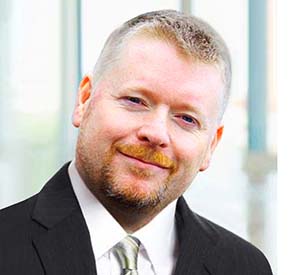 Capital College was founded in Canberra in 2016 and has been run, shaped, or staffed at different times by a team of education entrepreneurs from Australia, England, Malaysia, Singapore, India, Nepal, China, Japan, Iran, and South Africa. Collectively they have contributed hundreds of years of experience to the College’s cultural diversity and operational excellence. Students from 40 nations study with the College today. The College is growing substantially, adding a campus on the Gold Coast in 2020, and mini-campuses internationally. The growing focus on hybrid delivery models has also seen the College embrace online technology and local in-country partnerships.
Capital College was founded in Canberra in 2016 and has been run, shaped, or staffed at different times by a team of education entrepreneurs from Australia, England, Malaysia, Singapore, India, Nepal, China, Japan, Iran, and South Africa. Collectively they have contributed hundreds of years of experience to the College’s cultural diversity and operational excellence. Students from 40 nations study with the College today. The College is growing substantially, adding a campus on the Gold Coast in 2020, and mini-campuses internationally. The growing focus on hybrid delivery models has also seen the College embrace online technology and local in-country partnerships.
Aristotle Metadata– strengthening organisations through data
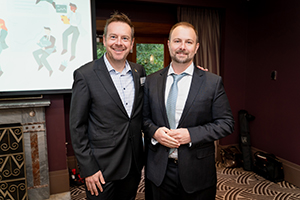 In 2014, Sam Spencer was in the public sector working on metadata modelling and registry design. Several national and international government departments were trying to find a better way to manage their data and sought access to the tool he was using. Knowing that access to government tools is always difficult; Sam saw an untapped market and business opportunity.
In 2014, Sam Spencer was in the public sector working on metadata modelling and registry design. Several national and international government departments were trying to find a better way to manage their data and sought access to the tool he was using. Knowing that access to government tools is always difficult; Sam saw an untapped market and business opportunity.
Sam spent the next six years developing prototypes and establishing the community behind the Aristotle platform. This was made up of organisations interested in a platform that could track a range of activities including hospital presentations across Europe; education outcomes across school systems across Australia; and financial literacy for migrants in Canada. Eighteen months ago, Aristotle started exporting their platform internationally.
A significant amount of Aristotle’s investment and development has focused on making the platform accessible for the various users of data and providing training to help people understand why their data has value.
Ardexa – developing globally competitive products
 Ardexa is a Canberra-based company providing high-security software and services for the Internet of Things. Formed by George Cora and Dave Mohr in 2013, the company develops their own edge and cloud software to connect small and large machines, automation devices and renewable power plants to the cloud. They work across a range of industries including energy, agriculture, manufacturing, automation and transport.
Ardexa is a Canberra-based company providing high-security software and services for the Internet of Things. Formed by George Cora and Dave Mohr in 2013, the company develops their own edge and cloud software to connect small and large machines, automation devices and renewable power plants to the cloud. They work across a range of industries including energy, agriculture, manufacturing, automation and transport.
Kord Group – eyes on, hands on
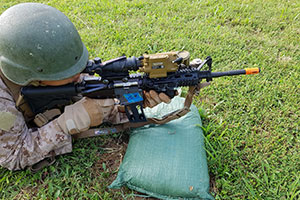 US Marine Testing RIC System [Outdoors]Kord Group is a privately owned group of technology companies with its head office in Canberra and offices in Stafford and Ogden in the United States. Founded in 2007, it is comprised of KordTech Pty Ltd and its subsidiaries, Kord Defence Pty Ltd, KordUSA Inc, and Shotdot Pty Ltd.
US Marine Testing RIC System [Outdoors]Kord Group is a privately owned group of technology companies with its head office in Canberra and offices in Stafford and Ogden in the United States. Founded in 2007, it is comprised of KordTech Pty Ltd and its subsidiaries, Kord Defence Pty Ltd, KordUSA Inc, and Shotdot Pty Ltd.
Kord designs and develops innovative control and shot recording technologies for the Defence, law enforcement and homeland security markets in the US and Australia.
Aspen Medical - Not just exporting Health Services, but Australian Compassion
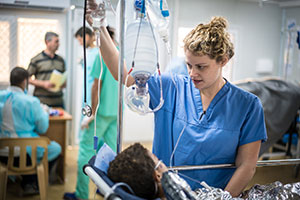 When the COVID pandemic first hit, one of the major concerns was how well prepared is the world’s health system to respond to an outbreak of unknown scale. How quickly could countries mobilise resources and people power to build facilities, and then staff them, to deal with the very high number of cases that were expected? High wealth countries would be stretched by the outbreak, but the most devastating impacts would be in those countries with poor health systems, ongoing conflicts or existing infectious disease issues.
When the COVID pandemic first hit, one of the major concerns was how well prepared is the world’s health system to respond to an outbreak of unknown scale. How quickly could countries mobilise resources and people power to build facilities, and then staff them, to deal with the very high number of cases that were expected? High wealth countries would be stretched by the outbreak, but the most devastating impacts would be in those countries with poor health systems, ongoing conflicts or existing infectious disease issues.
Penten - Developing solutions to take on the invisible enemy of the future
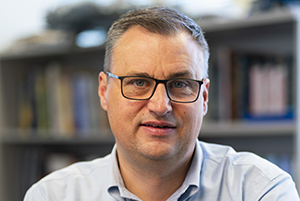 A recent international study1 found that during the current COVID-19 pandemic there has been a significant shift in cybercrime from targeting small business and individuals to a focus on major corporations, governments and critical infrastructure. The increasing use of remote systems and networks to support staff during this time has created new vulnerabilities that are being exploited by these adversaries. The level of cyber attack shows no sign of decreasing as the world slowly starts to open up again. In fact the nature of cyber attacks is becoming more sophisticated and multi pronged.
A recent international study1 found that during the current COVID-19 pandemic there has been a significant shift in cybercrime from targeting small business and individuals to a focus on major corporations, governments and critical infrastructure. The increasing use of remote systems and networks to support staff during this time has created new vulnerabilities that are being exploited by these adversaries. The level of cyber attack shows no sign of decreasing as the world slowly starts to open up again. In fact the nature of cyber attacks is becoming more sophisticated and multi pronged.
Instaclustr - putting users of data ahead of the game
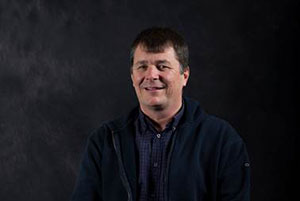 Peter LilleyWhat do gaming, banking, retail and content providers have in common – data. They create it, they want access to it and they use it to understand, attract, inform, retain and monetise their customers. According to the Economist, data is now the most valuable resource in the world, with 97percent of businesses using data in some way to inform their business opportunities and over 75 percent of businesses using data as an integral part of their business strategy.
Peter LilleyWhat do gaming, banking, retail and content providers have in common – data. They create it, they want access to it and they use it to understand, attract, inform, retain and monetise their customers. According to the Economist, data is now the most valuable resource in the world, with 97percent of businesses using data in some way to inform their business opportunities and over 75 percent of businesses using data as an integral part of their business strategy.
Goterra – The emerging exporter that celebrates maggot Mondays and frass Fridays
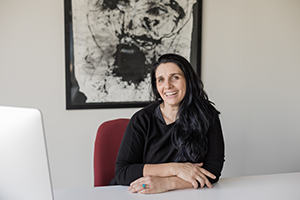 Goterra is a waste management infrastructure company that delivers modular infrastructure for biological services. Founded by Olympia Yarger, the company is changing the world by re-imagining the interplay between biology and technology.
Goterra is a waste management infrastructure company that delivers modular infrastructure for biological services. Founded by Olympia Yarger, the company is changing the world by re-imagining the interplay between biology and technology.
Goterra supplies hotels, restaurants, farms, supermarkets and hospitals with robot-managed capsules. Inside shipping containers, these shelves of black soldier fly larvae turn food waste into fertilizer. In a perfectly circular and sustainable ecosystem, once the maggots have consumed the waste, they, in turn, become a high protein animal feed.

